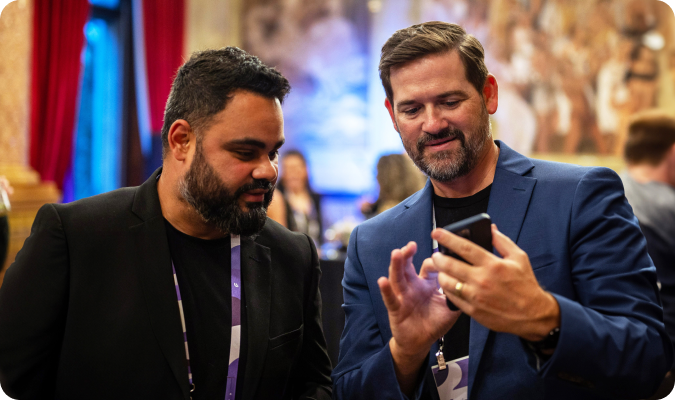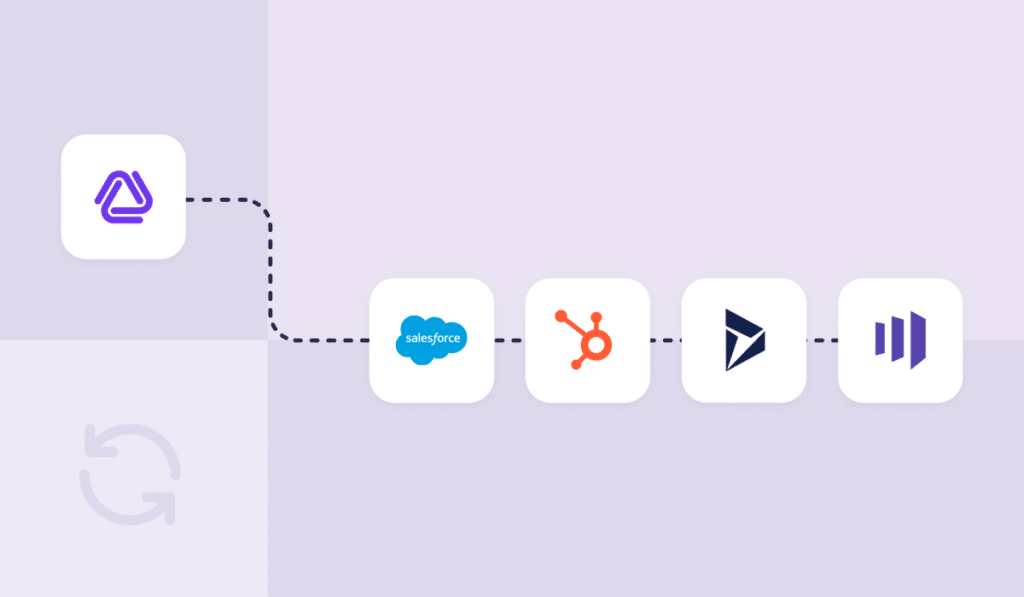
Last month we opened up the hybrid v virtual v live debate, and one thing is clear – nothing creates more noise in the world of professional events management than debates about event format.
It’s an important topic, of course, however, it can also be a distraction from the bigger issues that we believe professional conference organizers (PCOs) and event planners should remain focused on. And the top of that list is understanding the people who interact with the conferences and events we deliver, and how their expectations are changing and will continue to change.
In this month’s article, we’ll take a closer look at the two core groups that drive events, and what we can expect from them in the months and years to come. The first (and foremost) of those groups is the people who attend events. And the second group is the people who deliver them – that is, the talented global community of PCOs that EventsAir is proud to support.
What does the event attendee of the future look like?
To answer this question, it’s worth thinking about the event attendee of the very near past (pre-2020). In these “before times”, people came to events and behaved more like an audience. They seemed to behave as a nearly homogeneous group of people who would physically attend the event, sit in the room, listen to presentations, take their notes, do some networking and then leave.
Meanwhile, the event attendee of today has become far more engaged with the program, thanks to the seismic changes thrust upon us by the onset of Covid, as well as other supporting drivers such as technology (specifically social media, the development of more sophisticated attendee applications and engagement technology such as live polling and Q&A). Whether your audience is live or remote, most expect a certain level of two-way engagement to add value to the event content.
Now, if we’re looking to the future – say, over the next five years – those expectations around engagement are only likely to increase. People will not only expect to provide real-time feedback on the event, we think they’re going to expect to be involved in the development of a real-time narrative.
A real-time narrative means the event content and format will need to be truly agile and flexible. This means that your event could evolve on the spot, as everything is happening, and to adjust delivery based on what you’re hearing from the attendees in real-time. We’ll see things like pop-up sessions in response to whatever is capturing the interests of attendees. It’s a positive development – but also presents challenges for PCOs. Especially when AI comes into play.
AI truly has the power to shape and morph an attendee’s experience. For example, attendees can get real-time help from AI-powered chatbots that can answer queries, offer directions, and even customize event information. Personalized event recommendations, schedules, and matched networking opportunities are provided to attendees, enhancing their overall experience and productivity.
As to whether or not people will attend in-person or virtually, we see the answer to this question as being “a little of both”. Our research suggests that attendees may gravitate towards attending regular events in cycles – for example, two years in virtual mode and one year in person.
The benefit of this approach is that they’ll be able to reap the time and cost benefits of virtual attendance some of the time, but still stay in touch with the in-person benefits by attending as well. And let’s face it, budgets are increasingly tight so we are seeing more people being selective and choosing when to travel and when to attend remotely based on what they can afford.
Overall, this changing behavior is further evidence that the format debates are a distraction – you’re going to have to be ready for anything and everything. The good news is that the technology is only going to get better to support this type of engagement.
What do these changes mean for PCOs?
For PCOs, the changing expectations and behaviors of event and conference attendees mean one thing: the need to be more agile and responsive. Flexibility will need to be “baked in” to every event that you design.
Of course, this means you’ll need the right tools to capture what people are thinking in real time, and then facilitate features such as pop-up sessions based on the information you’re gathering. However, tools aren’t everything – preparation and the willingness to embrace change are just as important, if not more so.
In that spirit, here are four practical strategies PCOs can embrace today, to prepare for success at the events of tomorrow.
1. Embrace a mindset shift
This means thinking outside the box, rather than doing things a certain way because that’s how they’ve always been done. Or as we say at EventsAir, “seize the moment” and “build bold” (we really do – it’s part of our core values).
We understand that change can be scary. But, it doesn’t have to be. Not when you’re backed by a team of event tech experts who advocate for your success (hint: we love dynamic and complex events).
2. Make the change manageable for you
Innovation is great and necessary, but it won’t be successful in the long run if it’s not manageable for you and your team. Think about making small adjustments as you move towards more agile events. One strategy we like is setting aside a single “freeform” session at the end of the event where attendees drive the content – rather than moving to a completely agile program overnight. This helps you test and learn and eliminates much of the risk of a new format because you’re starting small with a single session.
Thankfully, gathering the ideas and concepts to build this unique session is extremely easy when you have an event management platform supporting you with live polling, real-time surveys, and so much more.
3. Understand the new skill sets required of PCOs
Over the past 10 years, the best PCOs have evolved their skill sets far beyond logistics and coordination. This trend is set to continue – the PCOs of tomorrow will be running teams with even more diverse skill sets. We expect we’ll see learning and development specialists, data and analytics experts and people focused solely on accessibility. We’ll be talking more about this in the coming months.
Learn how you can harness meaningful data from your events with EventsAir’s analytics tools.
4. Be smart with your partner and technology selection
Technology isn’t everything, of course, but it’s going to be an important foundational element of successful event delivery if you’re moving towards agile event delivery. Just as important as the technology is the partner who is delivering it – do they understand events and can they add value to the relationship in other ways? Or are they an “out of the box” technology vendor selling you a software solution, rather than the benefits of a true partnership?
It may sound like a number of very complex changes, and there is undeniably a learning curve ahead. However, we believe those PCOs who start testing and learning now, with small and manageable changes as well as making smart decisions around technologies and partners, will be well-prepared for success further down the track.
Learn how MCI Group used AIRCast studio to manage 500 speakers (with many presenting concurrently!)
How can we help you plan for the future of events?
At EventsAir, we understand the importance of selecting the right event technology partner – someone who can help you deliver exceptional events both today and in the future. We understand that your events need to transcend format – whether hybrid, virtual or live – and be exceptional, no matter how they are delivered.
We have one simple mission: to help event planners deliver the WOW in their events with the world’s most powerful event management technology. We’ve delivered some of the world’s biggest events, and we’d love to help you too.
Reach out to request a demo, and one of our team members will be in touch shortly.
Event Industry Trends | PCOs & Event Agencies
See EventsAir in action
Discover why 12,000+ event professionals trust EventsAir to deliver effortless events, every time.




